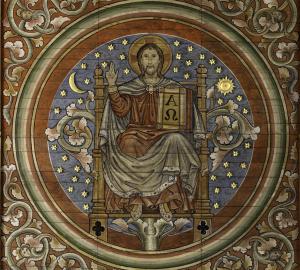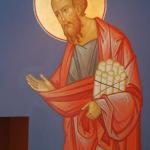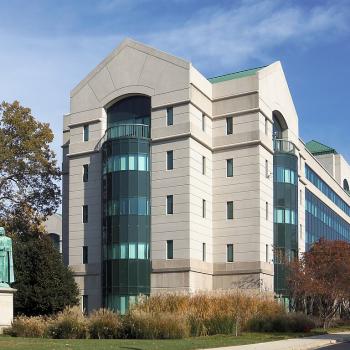
The Catholic Church is called the Catholic Church and not the Roman Catholic Church because it is far more extensive than what is found in Western Christianity. The reality of the Catholic Church is that its essence lies in its universality, its catholicity, and not just in the relationship people have with the Bishop (or Pope) of Rome. Because so many, including apologists, have centered their discussions on the papacy, the catholicity of the Church is often forgotten; in doing so, they make people think the Catholic Church is merely the “Roman Catholic Church.” And yet, it isn’t. It is the Catholic Church. What does this mean? What exactly does the Catholic Church mean by using the term Catholic to describe itself? The term Catholic means “universal” or “whole,” and so describing itself as Catholic, the Church implies that there is at least one if not many ways in which this catholicity can be found, not only in the Church, but in the essence of the Church itself. One such way is to see how the Catholic Church is in reality a plurality of particular churches with their own rites and theological traditions united with each other through communion (the eucharist, the body of Christ):
The Holy Catholic Church, which is the Mystical Body of Christ, is made up of the faithful who are organically united in the Holy Spirit by the same faith, the same sacraments and the same government and who, combining together into various groups which are held together by a hierarchy, form separate Churches or Rites. Between these there exists an admirable bond of union, such that the variety within the Church in no way harms its unity; rather it manifests it, for it is the mind of the Catholic Church that each individual Church or Rite should retain its traditions whole and entire and likewise that it should adapt its way of life to the different needs of time and place.[1]
This answer might confuse many, as it would seem to be self-contradictory to say the Catholic Church is one and yet find contained in it are many particular churches, with their own hierarchy, rites, and theological tradition. However, it is because they are united in communion with each other that they can be said to be one. And it is this unity which demonstrates its catholicity, since it shows the Catholic Church contain within itself a diversity of thoughts and traditions. The Catholic Church does not demand everyone become one and the same, undercutting their differences. It rather allows them to continue in their diversity, to have the Catholic Church as the foundation upon which their diversity can stand. Thus, their unity lies behind their diversity, and that unity is established by Christ. For, as Scripture indicates, the body of Christ has different members, with Christ as the head (cf. 1 Cor. 12:12-27). While Paul’s words are often used to explain the diversity of persons in the Church, they can and should also be used to explain the diversity of liturgical and theological traditions which are found in the Catholic Church. The particular churches are one in the Church as they are vivified by the Spirit of Christ: “Holy Church is the body of Christ vivified by one Spirit, united by one faith and sanctified. All of the faithful exist individually as members of this body, all one body on account of one spirit and one faith.” [2]
This reality, the diversity which is found in the Catholic Church, helps us understand, in part, its catholicity. For the Church calls everyone into its domain, showing that they have a place within it, one which does not require them to undermine their own rich heritage and traditions. Everyone is called to the Church, and in doing so, they are called to bring their cultural perspectives into the Church. St. Isidore of Seville, therefore, said the Church is designated as being Catholic for this reason:
‘Church’ (ecclesia) is a Greek word that is translated into Latin as “convocation” (convocatio) because it calls (vocare) everyone to itself. ‘Catholic’ (catholicus) is translated as “universal” (universalis), after the term καθ ὅλον, that is. ‘with respect to the whole’ for it is not restricted to some part of a territory, like the small associations of heretics, but is spread widely throughout the world. [3]
If the Church is to reach out to everyone, if it is to truly be universal, the faithful must not just go out into the world and call everyone to the Church, they are called to find whatever is good and true in the world, whatever is good and true in the cultures of the world, and show how what they find has a place within the Church. That is, as Christ is said to be the expectation of the nation, so the nations of the world have within themselves, within their histories and cultural expressions, all kinds of elements which already connect them to Christ, all kinds of elements which should be affirmed and promoted and not denied by the faithful. Again, it can be said, one way this is achieved is by allowing for a diversity of churches and rites in the Catholic Church. It is important for the faithful to find a way to live out the catholicity of the Church, that is, to find a way to promote all that is good and true in the world, and with it, to embrace everyone everywhere. “The Church is at home everywhere, and everyone should be able to feel himself at home in the Church. Thus the risen Christ, when he shows himself to his friends, takes on the countenance of all races and each hers him in his own tongue.”[4] It is Catholic, that is universal, because the Church doesn’t require everyone to become the same, to deny plurality in order to attain unity with each other. Indeed, to make everyone the same would undermine the catholic nature of the Church.
Furthermore, Hans Urs von Balthasar said that the Church is capable of being universal, embracing the great diversity found in the world and lift it up, because it is founded upon and rests upon the most catholic truth of all, the truth of revelation which points to the totality of the divine and its interconnection with humanity:
“Catholic” is a quality. It means totality and universality, and the understanding of it presupposes a particular human attitude of mind and heart. It is true that the catholicity of the Catholic Church is primarily a revelation and communication of the divine totality; it is true that the acceptance of this revelation by men is primarily a work of grace; all the same, it is possible for a historical period to be stretched beyond its limit by this grace. [5]
Thus, the foundation of the Church’s catholicity lies with Jesus, who must likewise be said to be universal, looking after and seeking for the good for everyone. “Jesus must be Catholic, otherwise his Church which followed him and is promised his fullness, could not be called Catholic. Being Catholic means embracing everything, leaving nothing out.” [6]
What is meant by saying the Church is Catholic, therefore, is many things, all related to the concept of the universal, that is, all related to universality. Its universality must be seen as a reflection of the universality of Jesus, and with it, the universality of God. God loves and embraces everyone, and this is shown to us and revealed to us in the way Jesus loves and embraces everyone. Jesus embraces everyone; thus the body of Christ, the Church, is meant to embrace everyone, allowing them to come together in communion and share with each other their particular gifts and graces. Catholicity, therefore, relates to diversity, while ecclesia, the Church, relates to unity; just as there is a diversity of persons in the Trinity, and yet there is one God, so there is a diversity of persons in the one Church.
What, then, does Catholic mean? As can be seem in the way the word has been used throughout this text, it is a word which can be simply defined, as St. Isidore did in his Etymologies: “‘Catholic’ (catholicus) means “universal” or ‘General,’ for all Greeks call the universal καθολικός.”[7] Catholic, therefore, simply means universal. It is how we understand this universality which gives us pause, for though the definition is simple, its application is not. The Catholic Church is not just founded upon any kind of universality, but the universal call of God to the whole of creation so that creation can reestablish the integral unity which was lost to it due to sin. Catholicity servers as a counter to individualistic ideologies and the sin which underlies them, not by undermining the unique gifts of the distinct persons involved, but rather by lifting them up, and allowing them to realize their true potential lies, not apart from each other, not apart from the whole, but together as one. Interdependence is shown to be greater than independence. The Catholic Church, in its diversity of churches and rites within those churches, points to this truth; it is far more than Rome, far more than the Pope of Rome, and to call it the Roman Catholic Church is to misunderstand the Catholic Church and its principles. It is Catholic. It is universal. It is intended to reflect the universality of Jesus, and with it, the universality of God. “A Church can be Catholic only because God is Catholic first, and because, in Jesus Christ and ultimately in the Holy Spirit, this catholicity on God’s part has opened itself to the world, simultaneously revealing and giving itself out.” [8] The Church is Catholic because it represents and presents to the world the universal bounty of God’s grace even as it is meant to call everyone in the world to be united together as one, that is, into the universal body of Christ.
[1] Orientalium ecclesiarum. Vatican translation. ¶2.
[2] Hugh of Saint Victor, On the Sacraments. Trans. Roy J. Deferrari (Cambridge: Medieval Academy of America, 1951), 254.
[3] St Isidore of Seville, Etymologies. trans. Stephen A. Barney, W.J. Lewis, J.A. Beach and Oliver Berghof (Cambridge: Cambridge University Press, 2010), 173.
[4] Henri de Lubac, Catholicism: Christ And The Common Destiny Of Man. Trans. Lancelot C. Sheppard and Elizabeth Englund, OP (San Francisco: Ignatius Press, 1988), 298.
[5] Hanrs Urs von Balthasar, In the Fullness Of Faith: On the Centrality Of The Distinctively Catholic. Trans. Graham Harrison (San Francisco: Ignatius Press, 1988), 13.
[6] Hanrs Urs von Balthasar, In the Fullness Of Faith: On the Centrality Of The Distinctively Catholic, 27.
[7] St Isidore of Seville, Etymologies, 172.
[8] Hanrs Urs von Balthasar, In the Fullness Of Faith: On the Centrality Of The Distinctively Catholic, 29-30.
Stay in touch! Like A Little Bit of Nothing on Facebook.
If you liked what you read, please consider sharing it with your friends and family!













